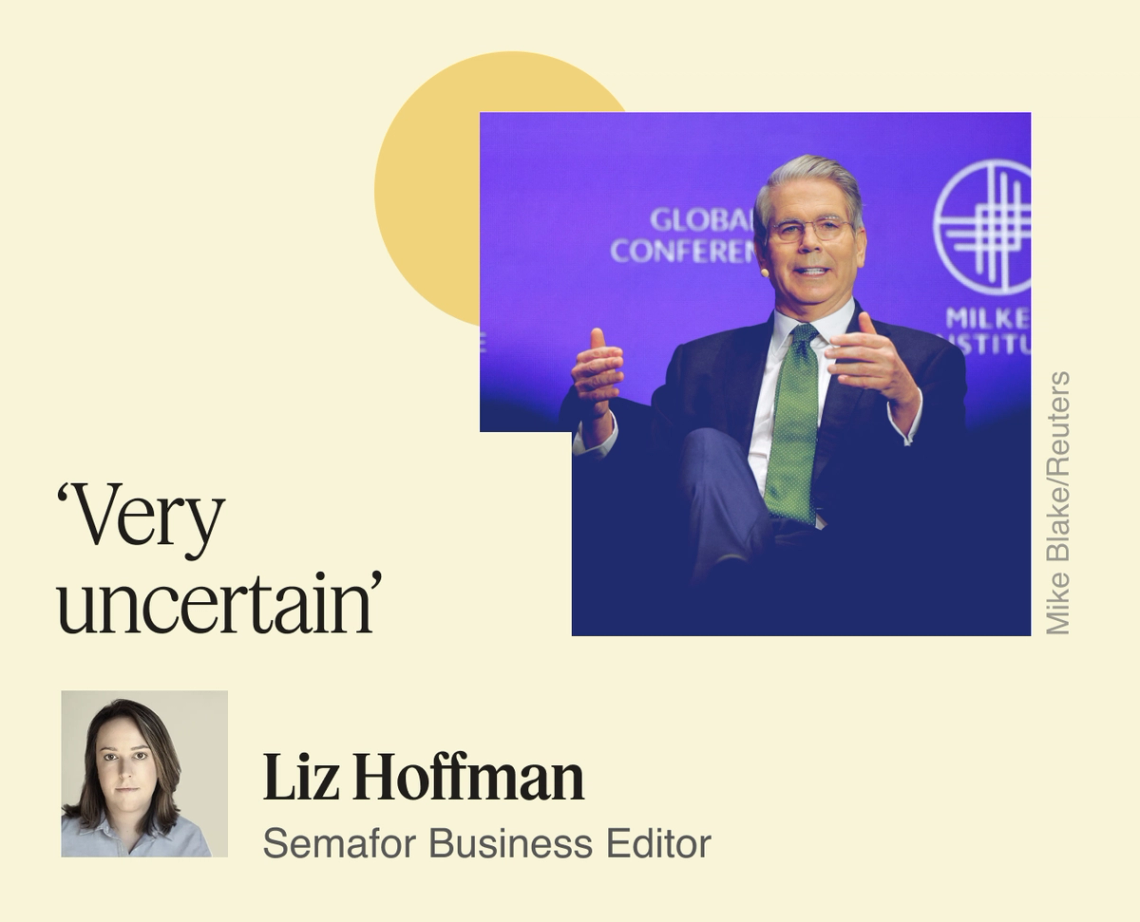 Hi from Los Angeles, where the mood at the Milken conference is better than you’d expect. Finance’s heavyweights are gathered at the event named for Wall Street’s favorite pardoned felon, whose pivot to philanthropist-convener is a fitting backdrop for the reinvention of another celebrity of the 1980s junk bonds era. Plenty of high-wattage attendees at Michael Milken’s conference have stories about lending to, negotiating with, or restructuring debt for Donald Trump. Most are unpleasant. The rest are now focused on navigating the world Trump has created over the past 12 weeks. Attendees at this week’s gathering — theme: “Toward a Flourishing Future” — were, meeting by meeting in Beverly Hills hotels, talking themselves into supporting an agenda of tariffs, tax cuts, and deregulation that Treasury Secretary Scott Bessent called “interlocking parts of an engine.” The tariffs are here. The tax cuts and deregulation are political promises from a president who is losing political capital by the day. Kristalina Georgieva, head of the International Monetary Fund, gave voice to executives and investors everywhere when she said, of Bessent’s trust-us message, “The way from here to there — very uncertain.” Bessent popped by a private dinner Sunday night at the Beverly Hills home of financier Steven A. Cohen, whose attendees included Blackstone’s Joe Baratta, Citigroup’s Jane Fraser, and Alphabet’s Ruth Porat. In something of a metaphor for what the capital class has hoped for and not gotten from Trump’s finance team, it was a pit stop: He was in and out, with no remarks for the group. |